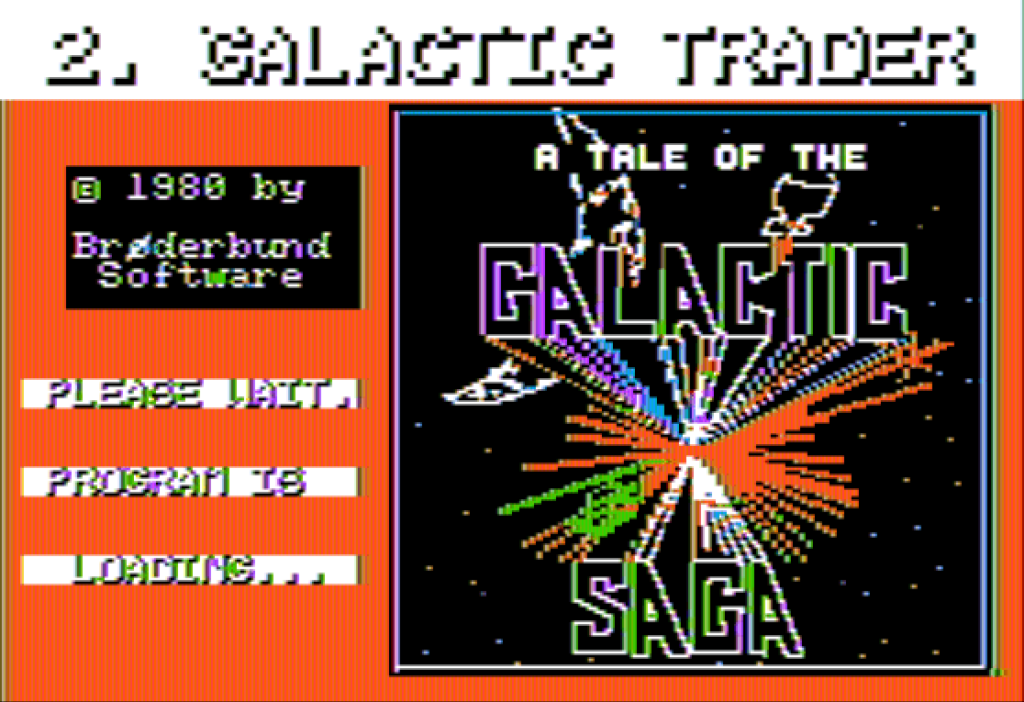
Can you give us more information on your background, and how it makes you qualified for this position ?
Well, from Stardate 1.0 to Stardate 530.9 I conquered a galactic empire for a bloodthirsty Emperor, so I think I can say I am well traveled and know how to foster talent amongst my coworkers ?
And why did you leave your former job after almost 530 years of service ?
Well, for starters, my now-former boss is trying to kill me!
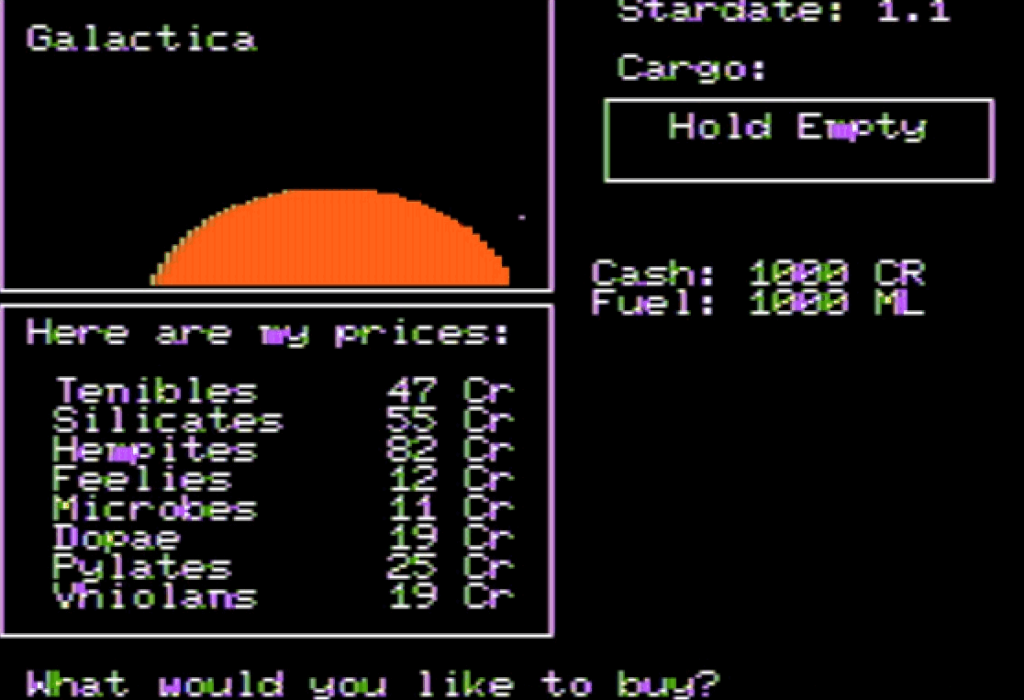
Galactic Trader is the second episode of the Galactic Saga. After conquering an Empire for Emperor Tawala, the main character of the first episode (Julien Du Buque) has been given the pink slip – after all why would the Emperor need a popular hero in command of a powerful military when there is no more system to conquer but only power to consolidate.
Instead of retiring with a massive pension and/or touring the universe to give TedX conferences, Du Buque decides to start a trade empire with the objective of accumulating one billion galactic credits. There must have been some inflation in the meantime, because I don’t think I spent more than 50 000 in Galactic Empire.
The player will quickly realize making a profit is significantly more difficult than conquering an empire, as the economy of the universe seems to have been conceived to frustrate the player.
- I joked in my introduction to my Galactic Empire article that the “Empire” was managed like a petty kingdom of the old Anglo-saxon heptarchy. The comparison was more apt than I imagined, because the galaxy also has an early medieval economy : currencies are useless except in Galactica, everywhere else barter is key,
- There is no communication between the systems, the only way to know the relative price of items in a system is to go there physically,
- Traders have weird principles. You point them one of your goods and how much you are willing to trade. They make one or two proposals based on this. If you refuse, they ask you to make your own proposal – only one. They can accept, refuse outright or ask you to meet them “in the middle”, but, whatever happens, once they have heard your counter-proposal (or if you don’t make one) they refuse to ever rediscuss bartering those goods until you depart the system and come back !

Are you sure you won’t reconsider if I divide my price by 10 ?
Also, clearly there is only one trader by planet. Talk about monopoly.
- Finally – and that’s the most frustrating issue – fuel cost is crippling, and proportional to both the weight carried and the distance traveled.
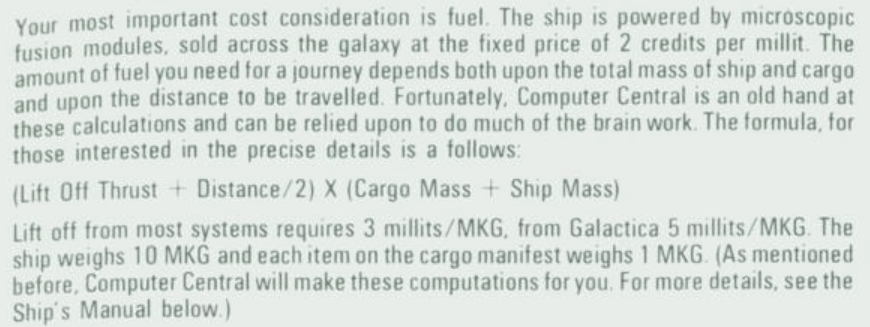
The cost of fuel means that every time you find one of those great deals where they give you thousands of… whatever those things are… for one unit of goods, you cannot take the deal (not fully anyway) because you cannot possibly carry the goods.
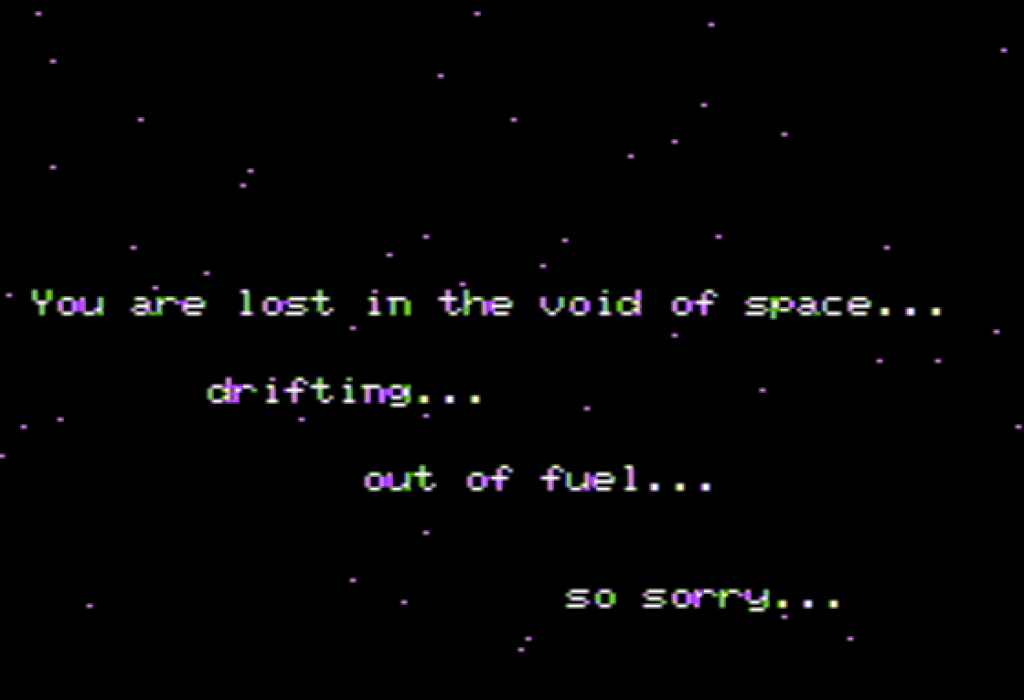
There is one island of rationality in this universe though : the fuel cartels. There are present in every single world, accept “no” for an answer and will exchange oil for goods. Their exchange rates will give a good proxy of the value of a good on a given world – though they will only give you a price for goods you do have.
Therefore, my strategy was to buy one unit of each good, tour quite a few planets with that, avoid the merchant waiting for me at the starport , rush to the local office of Royal Dutch Shell, ask a local sales rep. how much fuel he is willing to give me for each of my goods, and then hop to next planet.
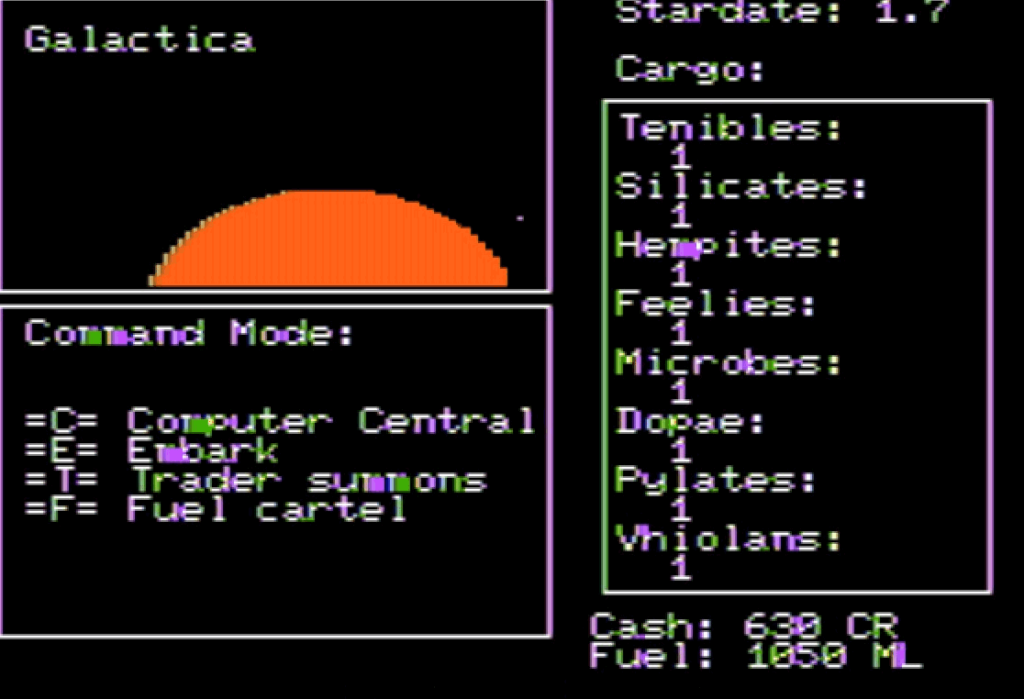
Back on Galactica, I had two surprises :
- Galactica had changed color for some reason – total nitpick,
- Tawala was trying to murder me, and I had better not come back to Galactica again !
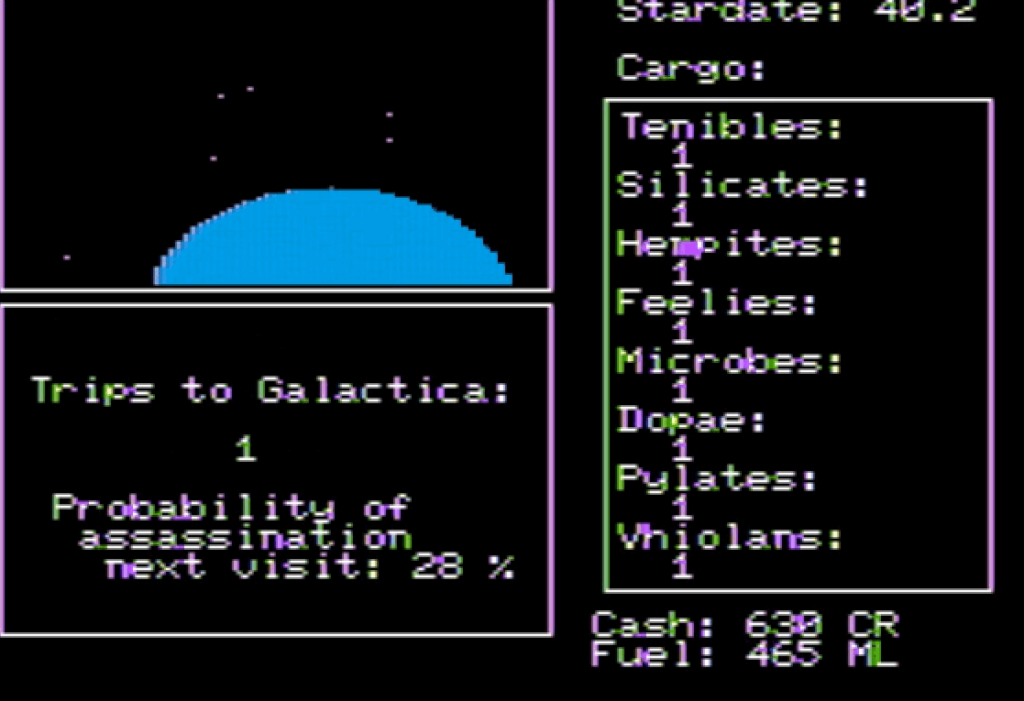
At this point, I will admit that for the very first time on this blog I save-scummed on an After Action Report. My initial investigation had been unlucky in term of exchange prices, I had already prepared this starmap below and I just did not want to start again until I found a good deal !
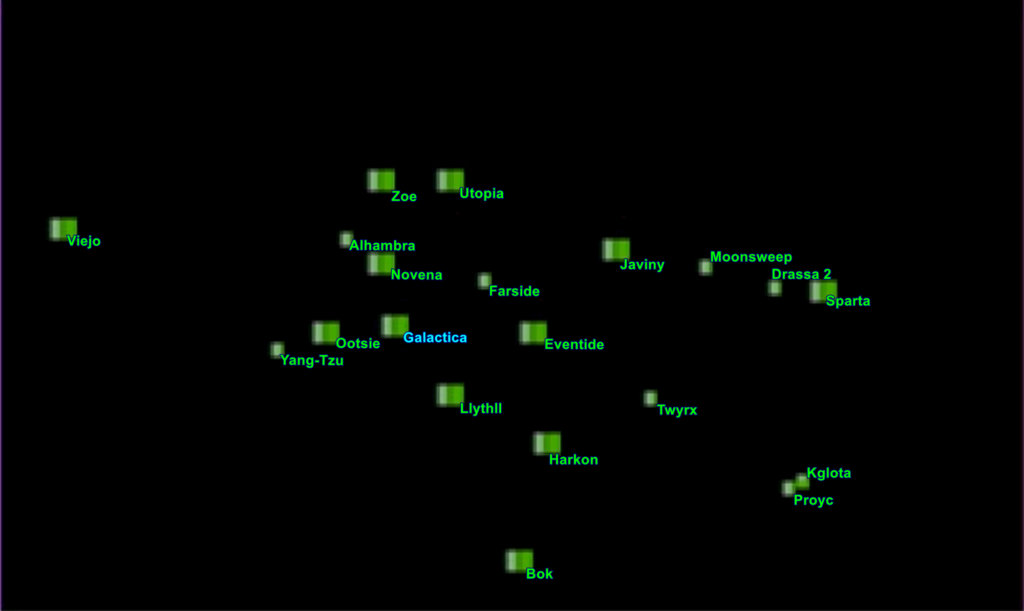
Thanks to the power of save and reload, I investigated two distant planets : Sparta and Bok, and boy was there some profit to be made there.
At that point, I had price information on around one third of the systems, which would later expand to the following complete pricing list :

And after that, it was only a matter of execution, traveling mostly between the worlds of Viejo, Bok and Zoe to become filthy rich.

Doing my second Zoe-Bok route, I found out that a merchant had negotiated a monopoly with the empire :
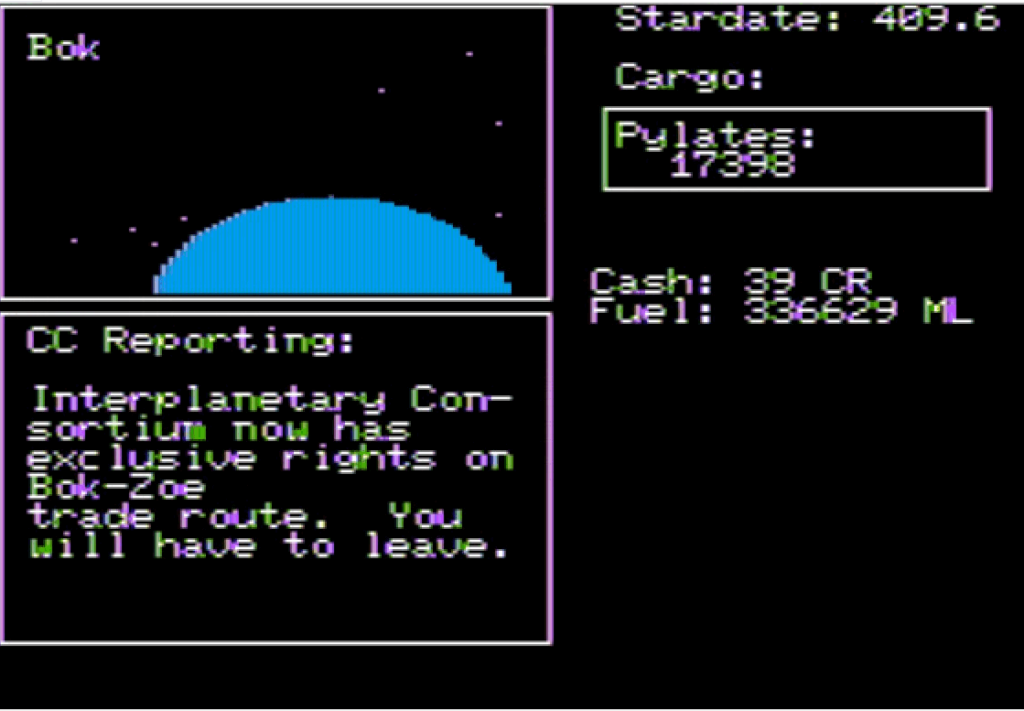
It mattered little. Maybe the Consortium had exclusive rights on the Zoe-Bok route, but I could easily stop on any other planet with my load of Pylates that Bok craves, then take-off again immediately and voilà, I am not violating anyone’s exclusive rights.
And a few jumps later, as I arrived on Viejo with Tenibles :
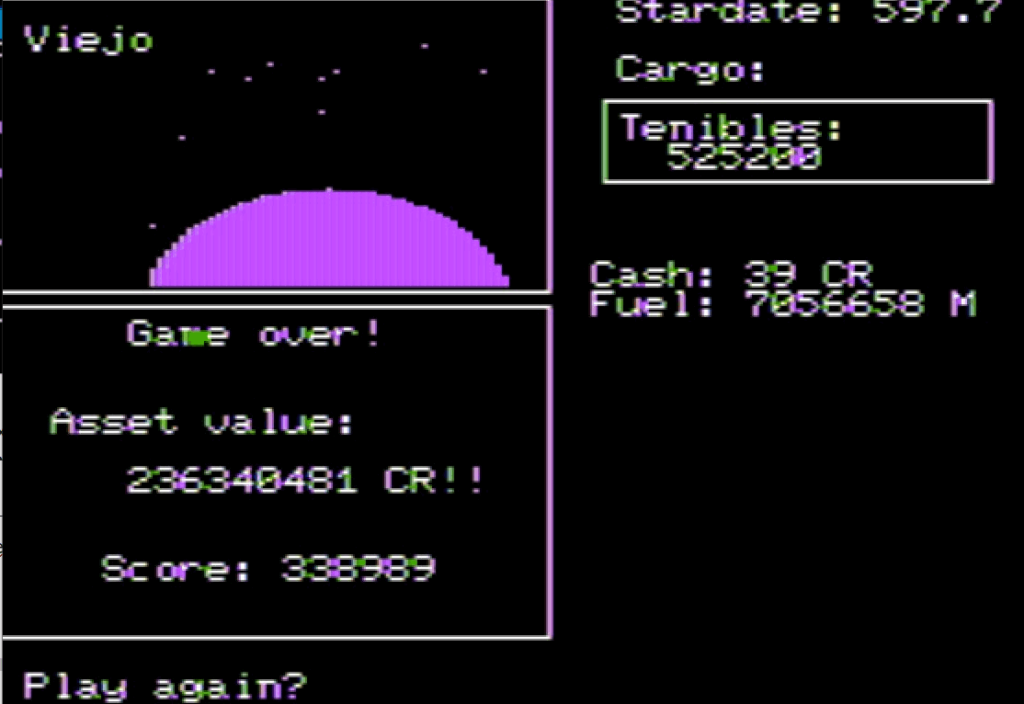
The end ! Note that despite the manual claiming I need one billion, one hundred million of asset value turns out to be enough.
A bit disappointed, I had hoped my final jump would be to Galactica, where I could burst in Tawala’s pace Prince Ali style.
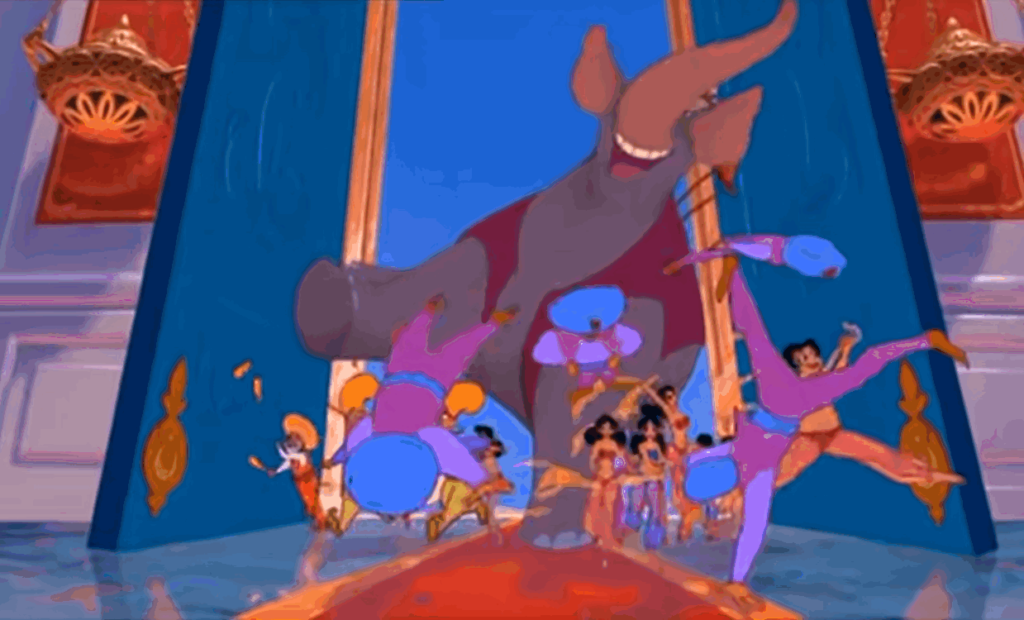
Final list of my travels :

Rating & Review
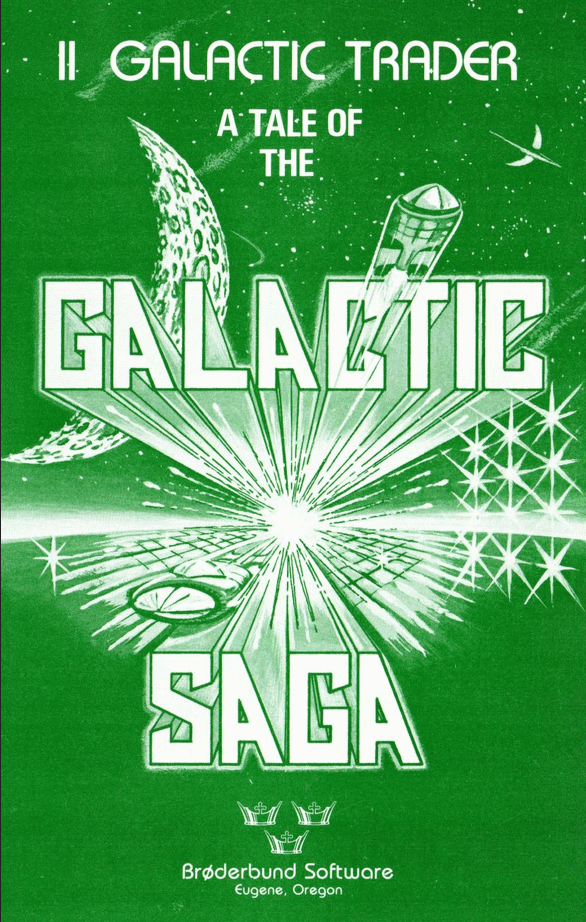
Galactic Trader by Douglas Carlston and later Brøderbund Software, USA
First release : 1979 on TRS-80
Tested on : Apple II
Total Hours Tested : 5
Average duration of a campaign: <3 hours
Difficulty: Advanced (2/5)
Would recommend to a modern player : Oh boy no.
Would recommend to a designer : No
Final Rating: Not rated (not a wargame).
Galactic Trader is the second opus of the Galactic Saga, and the only game in the saga that is not in any way a wargame. It is also, by general consensus, the weakest in the saga : the game does not flow naturally, it has very few options and death comes fast.
A. Immersion (Settings & Aesthetics)
The game uses exactly the same graphics as Galactic Empire, so I would give the same rating on graphics. On the other hand, it was impossible for me to get into the game.
Conquering the universe was one thing, but bartering “Hempites” and “Feelies” with people who at the same time seem powerful enough to have a trade monopoly on their planet (since if they are upset, you cannot trade on that planet) while behaving and negotiating as if they were in the bazaar just did not work for me.
B. UI , Clarity of rules and outcomes
The UI is poorly done, and for a game that simple it is really not acceptable.
- On a new planet, the first person you want to speak to is the local representative of the fuel cartel. The first person who will try to talk to you is the local trader, so you will have to shoo them off !
- So now you are talking to the fuel cartel, and the first thing they ask you is how much fuel you want, and whether you want to pay cash. Except you never want to pay for cash, so you have to say, every single time “I want 10 fuel units, but oh, no I forgot my wallet. But maybe I can interest you in 4 283 Tenibles – how many fuel units can I have with that ? 336 731 ? Sure, I will take all 336 731.”
- Then you will go see the trader. Of course, the trader’s offers come one after the other, so even if he makes you a good proposal you want to go through all of them, so the conversation will go like this :
Hello friend, what do you want to trade ?
[P]ylates
How many ?
10
Would you trade for 40 Microbes ?
[N]o
Would you trade for 13 Vhiolans
[N]o
What would you like to trade then ?
M[icrobes]
How many ?
40
For extra frustration, if you start typing a number and stop for a couple seconds (eg to count the number of zeros for large numbers), the game proceeds and you cannot come back (the “matter” on this type of good will be “settled” at the end of the interaction)
Terrible trading interface on a game 100% about trading is really not great.
On another matter, when you plan to travel to another system, the game does not tell you in advance “you don’t have enough fuel for that voyage“. If you start the voyage, you will be stranded and lose. If you want to know if you can make it, you need to use the ship’s computer.
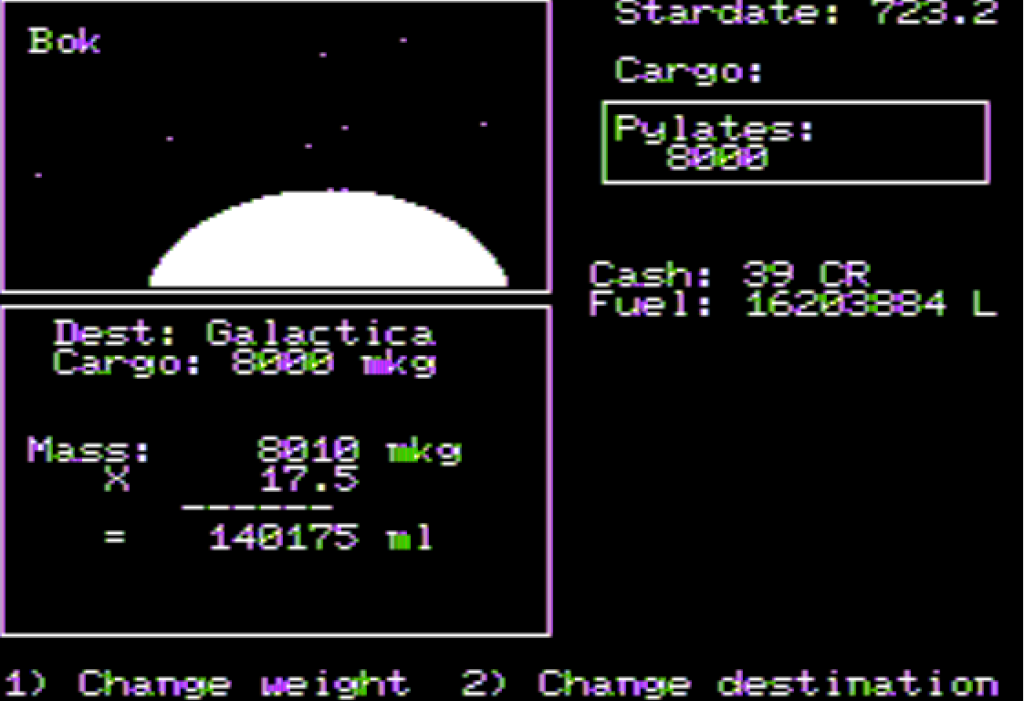
Final note : the game has a register of all the trades offered to you… but really what you need is the price according to the fuel cartel, not the price according to the local traders :
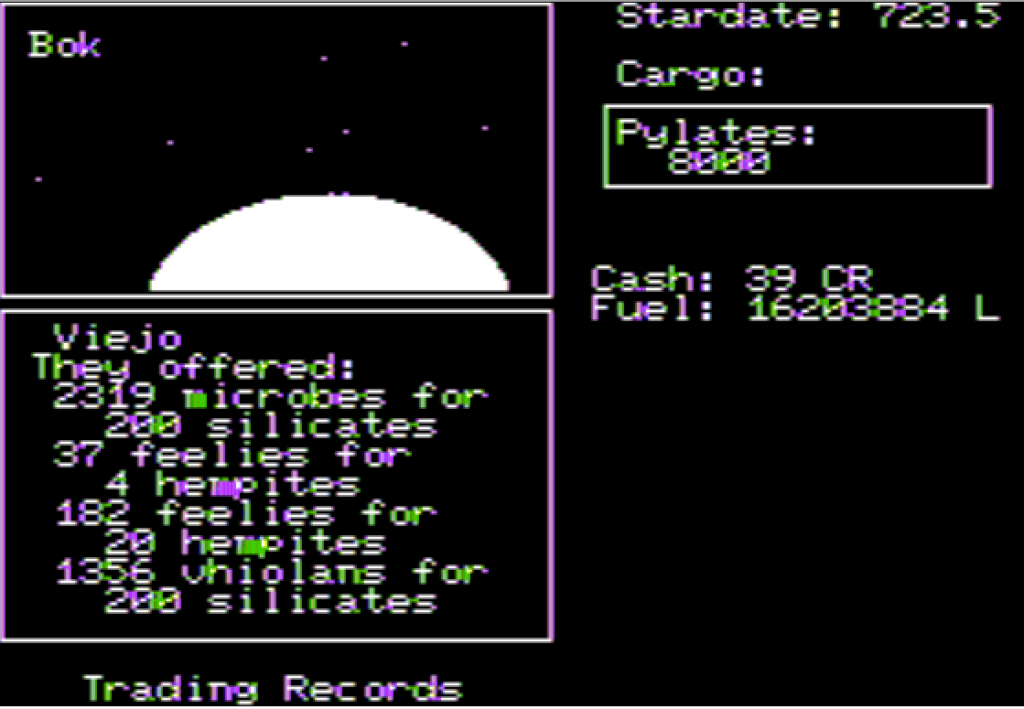
Overall, really poorly designed even though there were so few menus.
C. Systems
How the game works should be pretty clear at this point. Something frustrating is that playing the game as designed is a sure way to lose. In particular, the manual says this :

It says it is better to buy fuel with cash. The problem with “buying fuel with cash” is that the only way to have cash is to sell your goods on Galactica, which you don’t want to do because let’s be honest no one likes being murdered.
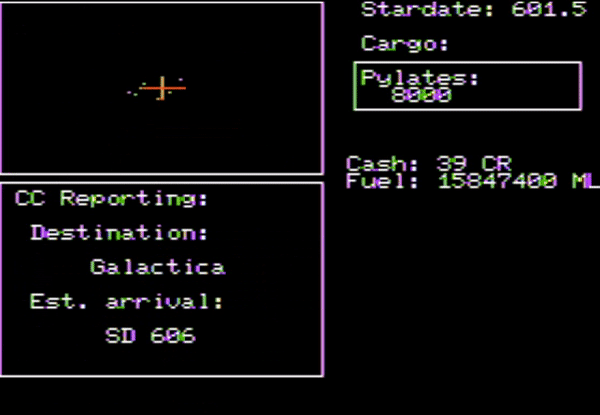
The assassination seems to have been added at the last possible moment, maybe to prepare for Galactic Revolution. In my opinion, this harmed the game.
D. Scenario design & Balancing
Not much to say. I appreciate playing in the same universe as Galactic Empire. I also appreciate the fact that prices are really distributed according to the distance to the world which, presumably, produce the goods :
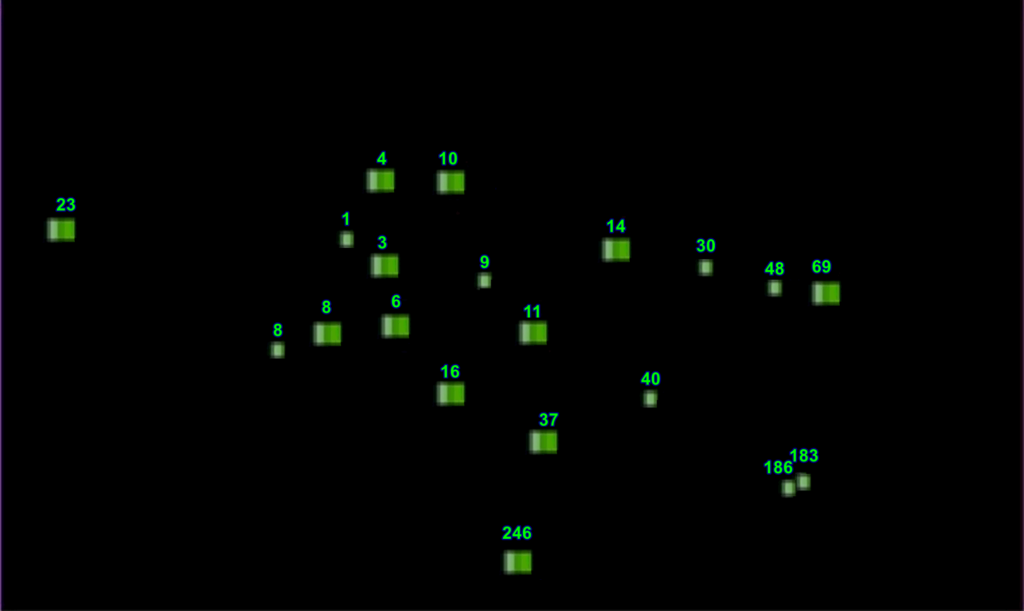
This means that prices on the edge of the galaxy tend to be either very high… or very low. It is probably a viable strategy to stock up on something, anything, travel as far as possible and hope for the best.
Small note : you can choose the difficulty of the game when you launch it (I suppose it impacts how much prices vary). I chose difficulty 5 out of 9.
E. Fun & Replayability
I am not the target audience, certainly, but I believe it is objectively a bad game. The Data Driven Gamer seems to have hated it as well (in his comments on Galactic Empire).
I played Galactic Trader because I have this compulsion to never play the later installments of a series without playing and finishing the earlier one, but at this point I will proceed to Galactic Revolution while assuming that Galactic Trader never happened, or if it happened it happened to some associate of De Buque who will secretly finance his coup in Revolution.
Contemporary Reviews
There are very few reviews on Galactic Trader, and those few reviews are almost always reviews of the Galactic Saga as whole, where most of the space is allocated to Galactic Empire, and whatever is left allocated to Galactic Trader and maybe Galactic Revolution. In general, all the praise are for the former, the two later only receive a quick description. Due to this, I have an hard time determining what contemporary reviewers thought of this game, except maybe that it was not as exceptional and worthy of long reviews as Empire.
But there is one exception : the 1982 Book of Apple Software separated the different Galactic Saga games. The verdict on Galactic Trader : “It just isn’t that interesting of a game.”
4 Comments
I like the idea of trading games, so it’s a shame this one is so dull. Then again: 1979.
In 1979 Space Invaders was a smash hit and the new hotness was that pulsing non-stop action game Asteroids. Kind of puts it in perspective.
Asteroids actually uses the same processor as the Apple II. (Not the same display, obviously.) Mostly it’s impressive that, for a brief moment, there was almost parity between home and arcade processing capabilities. That gap got *huge* quickly.
I think the real power of arcade games was the specialized graphics hardware that accelerated sprites and tile-scrolling, rather than raw processing power. For example, Gauntlet in 1984 used a modified version of the Motorola CPU found in the OG Macintosh, and it’s even clocked a bit slower (though used more efficiently). I assume Asteroids had dedicated hardware for calculating vertex translation and rotation.
Sega’s a big exception, though. OutRun, in 1986, has dual CPUs and and entire video board, and their arcade designs only got crazier over the next several years. But I think most arcade games relied on consumer-grade CPU power.